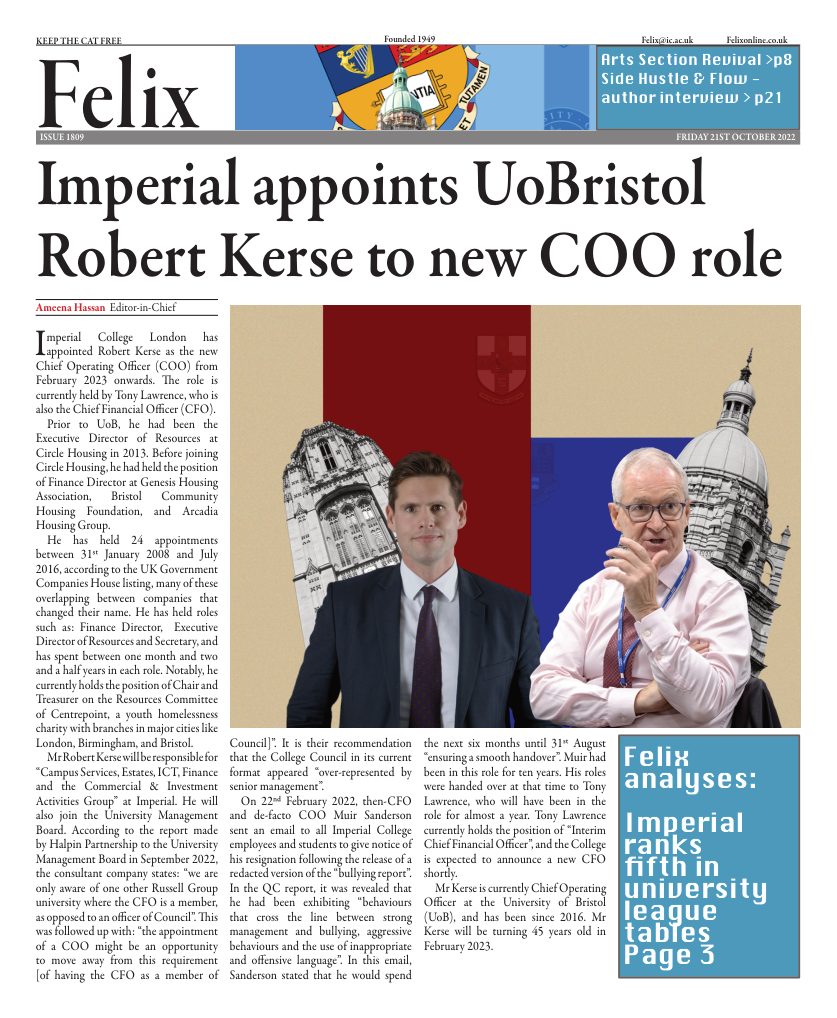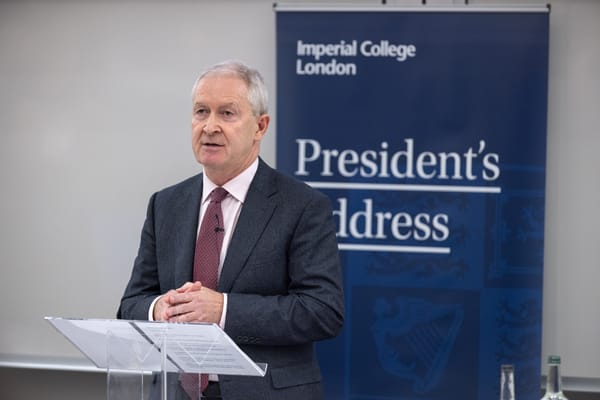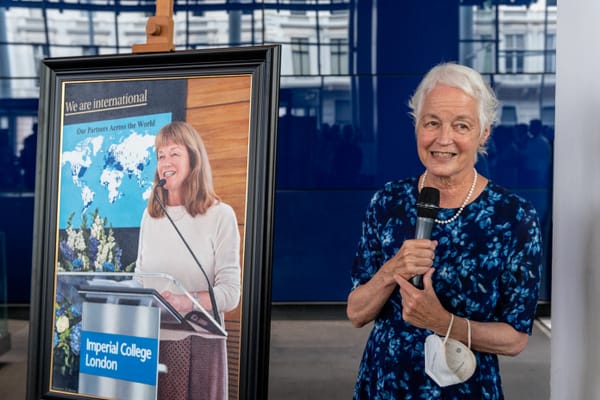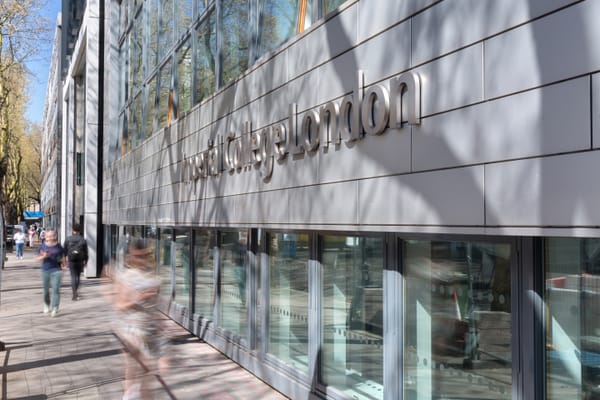Imperial ranks fifth in British university league tables
Imperial named Guardian’s University of the Year and Times & Sunday Times University of the Year for Graduate Employment
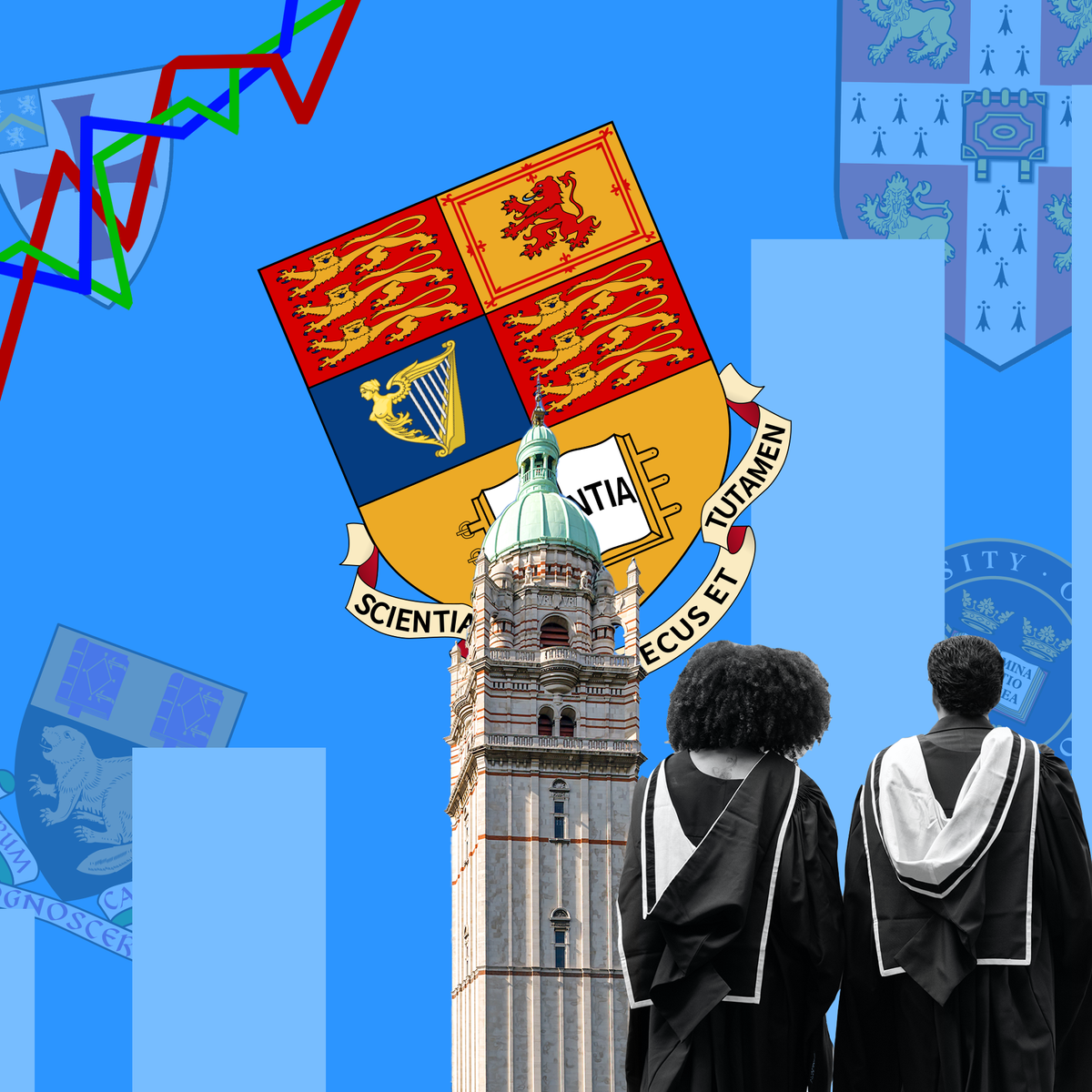
Imperial College London has been ranked fifth nationally by the The Guardian, The Times and The Sunday Times (TST), and The Complete University Guide (TCUG).
The University of Oxford tops two of the three university league tables (TST and TCUG) but has been beaten to the top spot in The Guardian rankings by St Andrews, which has risen from third place in 2022. St Andrews last year became the first university to beat Oxbridge to the number one spot in a British league table, after topping The Times and Sunday Times Good University Guide.
Imperial has been awarded University of the Year by The Guardian and was named The Times & Sunday Times University of the Year for Graduate Employment. The Guardian praised the strength of the College’s research and entrepreneurial spirit, calling the Enterprise Lab “the crown jewel in an institution that prides itself on blending business with the sciences.” The Times and The Sunday Times stated: “The career prospects of Imperial graduates are the best in the country, proving the talent pipeline to industry is unsurpassed from its courses specialising in science, medicine, engineering and business.”
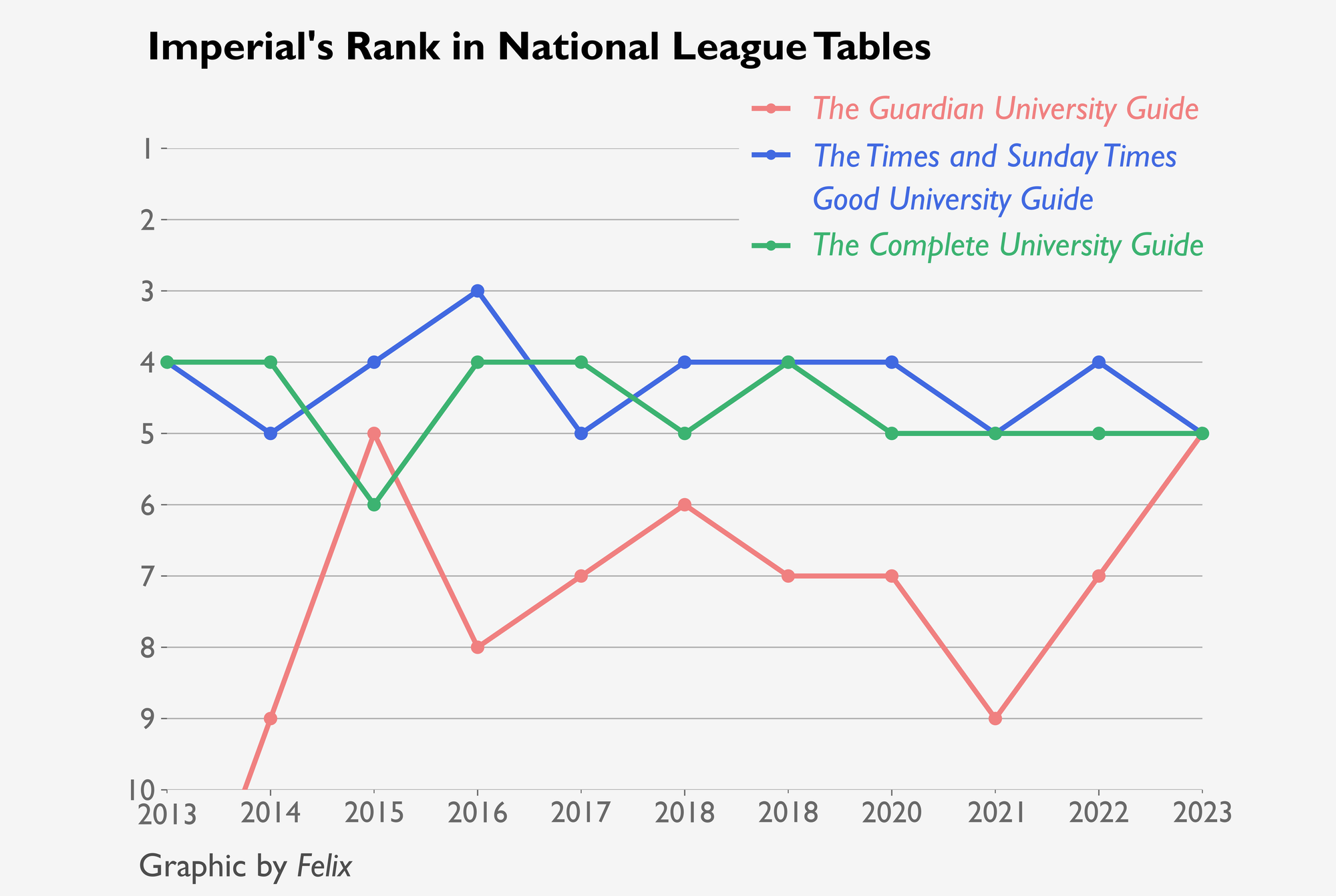
Social Inclusion
The Times and Sunday Times Good University Guide finds that Imperial performs poorly when it comes to social inclusion. The College has dropped two places this year, from 112th in 2022, to 114th in 2023. Only Oxford and Cambridge perform worse by the social inclusion metric, occupying the 115th and 116th spots respectively.
Over a third of Imperial’s admissions come from private schools, with non-grammar state schools still representing less than half of admissions. These figures mean Imperial ranks sixth out of 133 for independent school admissions, and second from bottom for non-grammar state school admissions.
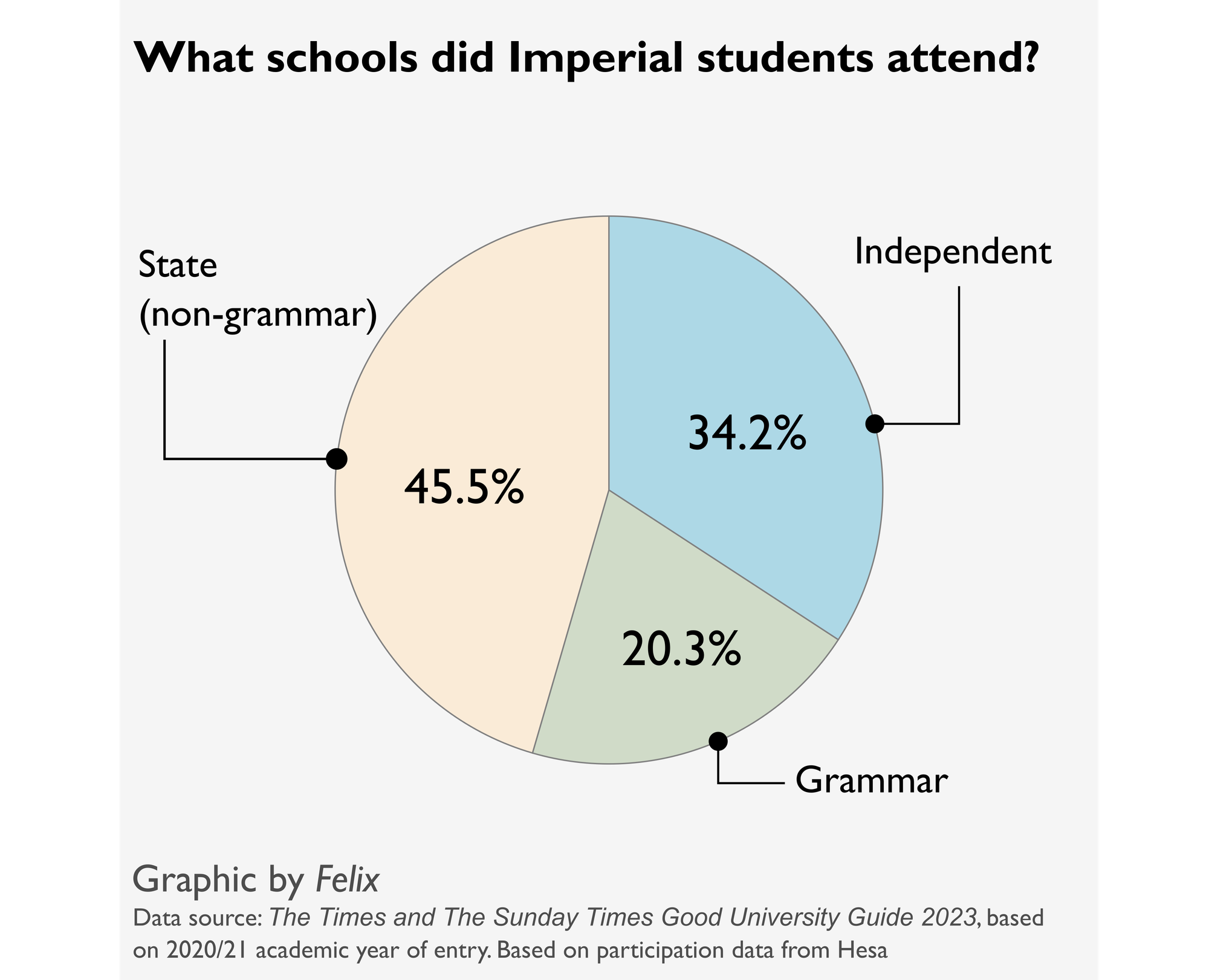
Imperial performs significantly better than other universities when assessed by the “Black achievement gap”. According to The Times and The Sunday Times, this is “the percentage point difference between the proportion of firsts and 2:1s attained by white students and those from black, Asian, mixed or other ethnic minority backgrounds”. The value takes no account of disparities between ethnic minorities. Imperial ranks second in the country by this metric, with a Black achievement gap of -2.5%, an improvement on last year’s value of -3.8%.
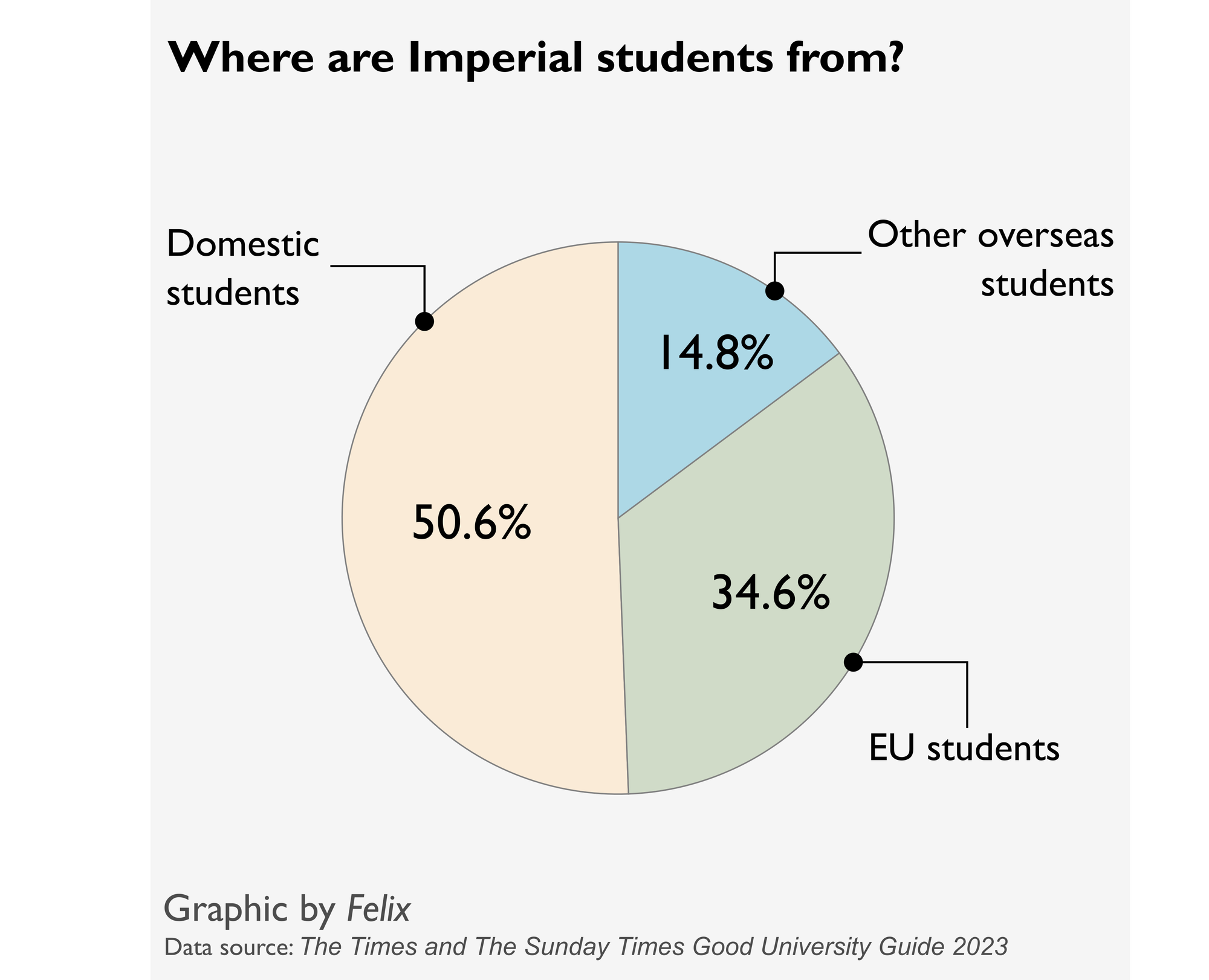
Student satisfaction
The Guardian University Guide quotes results from the 2022 National Student Survey (NSS) to measure student satisfaction. The NSS is an optional survey sent out to all final year undergraduates. Imperial ranks third for teaching satisfaction (85.8% satisfaction) and eighth for course satisfaction (83.1%). Overall, student satisfaction has fallen to 82%, down two percentage points compared to last year.
The Times and Sunday Times Good University Guide draws together the results of multiple NSS questions to formulate its own student experience (%) and teaching quality (%) scores. This year, Imperial has tumbled down the teaching quality rankings, falling from 28th place last year to 71st. However, this corresponds to only a 2.8 point drop in teaching quality score (from 77.7% to 74.9%). The College performs similarly for student experience, dropping from 3rd place to 12th, with a 2.1 point year-on-year drop in student experience score (from 79.3% to 77.2%).
The Times and Sunday Times Good University Guide provides a detailed breakdown of student satisfaction with teaching quality, finding that geology students are the most satisfied (86.8% satisfaction), and physics students are the least satisfied (59.8% satisfaction).
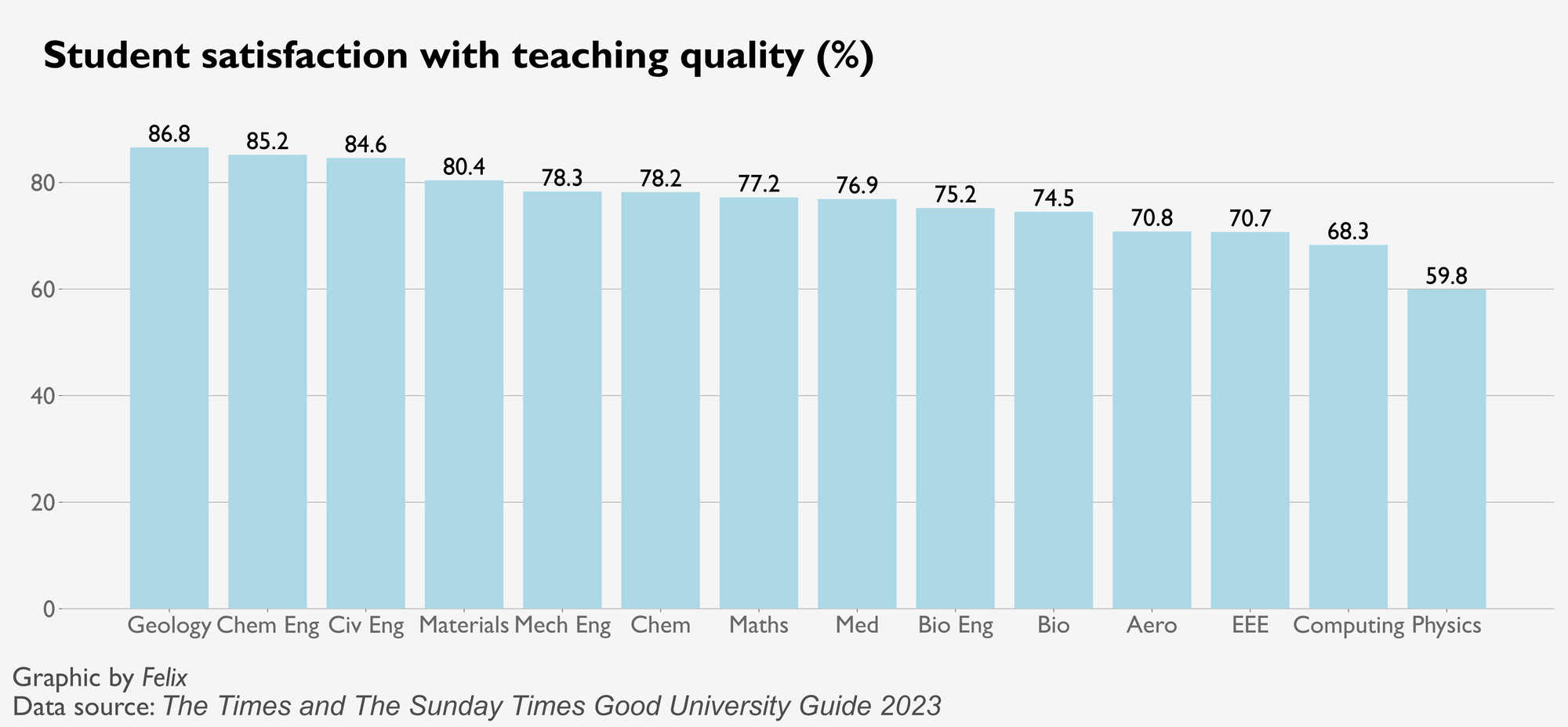
The Complete University Guide uses ratings from whatuni.com, which asks students to rate their universities out of five for four different student experience factors. It draws from the much smaller sample of students who have chosen to review their institutions on the Whatuni website. Imperial ranks 88th out of 95 universities overall, with a 3.8-star overall rating. “Lecturers and teaching quality” get a 3.6-star rating (87th/95 universities) and Imperial College Union gets a 3.4-star rating (78th/95 universities). The College’s student halls fare better, receiving a 4-star rating (19th/62 universities).
Research Quality
Imperial tops The Times and Sunday Times Good University Guide and The Complete University Guide for quality of research, beating out the University of Cambridge and LSE, which rank second and third respectively, in both guides. The Guardian’s guide does not include research quality metrics.
The results come on the back of an exceptional performance in the most recent Research Excellence Framework (REF) publication. REF 2021 ranked Imperial first in the UK and found that the College provides a greater proportion of “world-leading” research than any other UK university. The REF was established in 2014 and takes place every six years, assessing the quality of research performed by UK higher education institutions. The REF success follows the COVID-19 pandemic, where experts from the College played a central role in influencing government policies across the world

